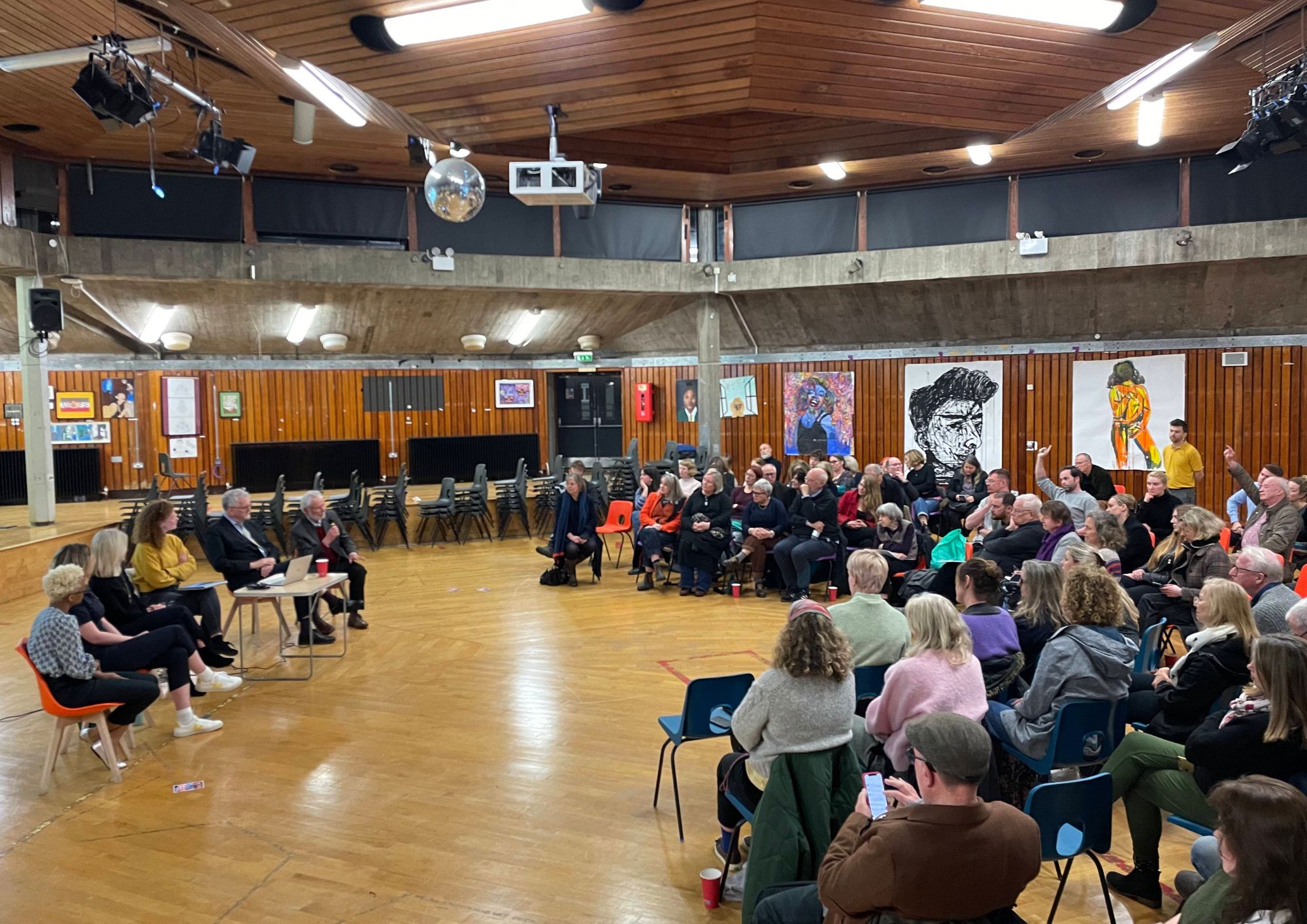Debate hears calls to end tax help to private schools
Parents and students debate the merits of private vs state education
Friday, 5th May 2023 — By Frankie Lister-Fell

CAMPAIGNERS want Sir Keir Starmer to commit to the axing of tax breaks for private schools, a fiery debate heard on Thursday evening.
Any move to change the rules would have a significant impact in Camden – where there are 32 fee-paying schools, with more than half claiming charitable status.
Panellists at an event in the auditorium at Acland Burghley School in Tufnell Park, hosted by the Private Education Policy Forum (PEPF), discussed how far reforms should go.
Journalist and PEPF co-founder Jess Staufenberg said that the schools classed as charities “are exempt from corporation tax, local business rates, capital gains tax and also that school fees are exempt from VAT”.
In return, those schools must demonstrate they provide a “public benefit”, but this is not independently regulated. If VAT was added to private schools fees, it is estimated that an extra £1.7billion a year would be raised across the country.
Paying the full business rate would raise £150million a year. Users of private schools fear this would lead to fees being increased.
Writer and PR professional Diana Young, who sends her children to a private school in south London, told the debate her school fees would increase by 15 per cent if VAT was added.
“I’m really worried about it because there’s this mindset that only wealthy parents can afford private schools when there are a lot of middle-income earners who make that sacrifice in order to afford those fees for their children,” she said.
Ms Young added she would not send her children to state school as she fears the racism they might face.
And at the state school where she serves as governor near her home in south London she said “70 per cent of pupils were underperforming” and a lot of students had SEND or English as their second language.
A former Acland Burghley pupil in the audience, Luka, said to Ms Young: “I went to this school which is incredibly diverse. I’ve been in lessons with lots of people with SEN and I achieved better GCSE grades at this school compared to most of my friends that went to private school. In this school they’ve helped me navigate life.”
Lord Lucas, Conservative peer and editor of the Good Schools Guide, said that private schools should keep their charitable status if they strengthen their public benefit by providing funded places for disadvantaged children.
He said: “I don’t think in any society that I can imagine that you’re going to successfully prevent parents benefiting your own children through education. Independent schools should be required to take 10 per cent of children nominated by local authorities, in other words, not at the choice of the school. The assisted places scheme is an absolute scam.”
But campaigning education journalist Fiona Millar, who lives in Gospel Oak, said: “I don’t like this free place thing, I just think it’s crumbs from a rich man’s table.
“There’s a fundamental unfairness here. You’ve got 500,000 children in the private sector and over eight million in the state sector and they’re funded at a vastly different rate and it’s just wrong. To me it’s a political argument, the poorest children in society should not be funded less than the well-off.”
She added: “We did some research talking to young people in Camden [during the pandemic]. Young people felt very keenly that the private schools in Camden were getting something they weren’t getting and I think a lot of them hadn’t realised that before.
“They [pupils enrolled in private schools] were getting iPads, one-to-one tuition online at home, while a lot of these kids didn’t even have an internet connection.”
Ms Millar said the suggested reform was “small scale” and suggested the “only viable” solution is to regulate charitable status and for private schools to ask local state schools what they needed, including resources, sport facilities and trips.
Andrew Dyer, the district secretary for Camden National Education Union, said: “Lots of the discussion about sharing resources, it seems to be around an age group which is more secondary. “But by that point inequality is almost baked in. It’s not about when they are doing their GCSEs and A-levels.”
FOUR schools have closed down in Camden amid what has been described as a pupil shortage fuelled by expensive housing costs and a low birth rate. Council figures show that a large share of the borough are choosing private options, however.
The CNJ reported in September that 55 per cent of teenage children living in Camden are either educated at a fee-paying school or outside of the borough.